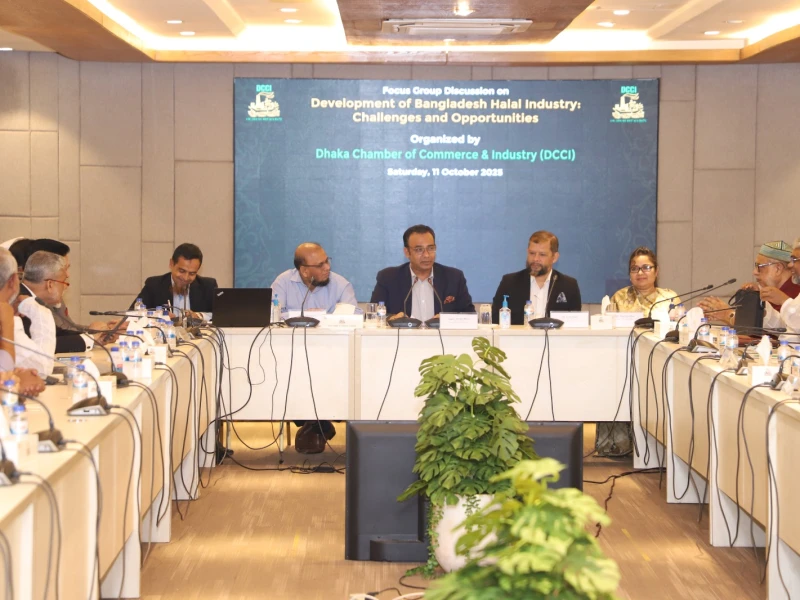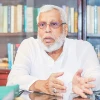A concerted and well-coordinated halal ecosystem is crucial for unlocking Bangladesh’s potential in the global halal market, which is currently valued at around USD 3 trillion, speakers said at a focus group discussion organized by the Dhaka Chamber of Commerce & Industry (DCCI) on Saturday.
The discussion titled “Development of Bangladesh Halal Industry: Challenges and Prospects” was held at the DCCI auditorium, where industry experts and policymakers stressed the need for an independent halal certification authority, internationally accredited testing facilities, and stronger public–private collaboration to ensure Bangladesh’s competitiveness in the global halal market.
In his welcome remarks, DCCI Senior Vice President Razeev H Chowdhury said Bangladesh has yet to fully utilize its potential in the halal sector, as the country’s exports from halal products remain below USD 1 billion — mostly agro-based — despite the global market’s projected growth to USD 9.45 trillion by 2034.
He identified several bottlenecks, including non-compliance with international standards, lack of logistics support, inadequate laboratory facilities, shortage of skilled manpower, and the absence of a unified halal ecosystem.
An independent halal certification board with international recognition is urgently needed,” he said, adding that public–private partnerships could help establish world-standard testing and certification facilities.
Presenting the keynote paper, Dr. Mominul Islam, Assistant Professor at IUBAT, noted that both the Islamic Foundation and Bangladesh Standards and Testing Institution (BSTI) currently issue halal certificates, often creating procedural complications.
He cited the absence of a national halal policy, limited SME participation, poor branding, and weak supply chain management as key barriers to growth.
Md Abul Kalam Azad, Assistant Manager (Export) of Paragon Group, called for a digital and technology-based certification system, while Bengal Meat’s AGM Sayadul Haq Bhuiyan emphasized blockchain technology for animal traceability and international accreditation of halal authorities.
Islamic Foundation Deputy Director Md Abu Saleh Patwary said no single government agency currently has the full capacity to issue halal certificates independently, underscoring the need for coordinated institutional efforts and stronger monitoring.
Export Promotion Bureau Director General Baby Rani Karmakar said the global halal market is expanding by nearly 12% annually, but Bangladesh is yet to claim a notable share. She urged for policy reforms and coordinated action to boost halal exports.
Bangladesh Investment Development Authority (BIDA) Director General Ariful Hoque said the halal industry could play a key role in export diversification in the post-LDC era, adding that the government is considering establishing a special economic zone dedicated to halal industries.
Bangladesh Accreditation Board Director General Mohd Aminul Islam expressed optimism that coordinated efforts and strategic planning could help Bangladesh gain a stronger foothold in the global halal trade.
During the open-floor discussion, former DCCI Vice President M Abu Hurairah highlighted the growing role of rural women in livestock and agriculture, suggesting low-interest incentives to enhance their participation in halal food production.
DCCI Vice President Md Salem Sulaiman, board members, and representatives from both public and private sectors were present at the event.


 Prev Post :
Prev Post :
-1760248916.webp)